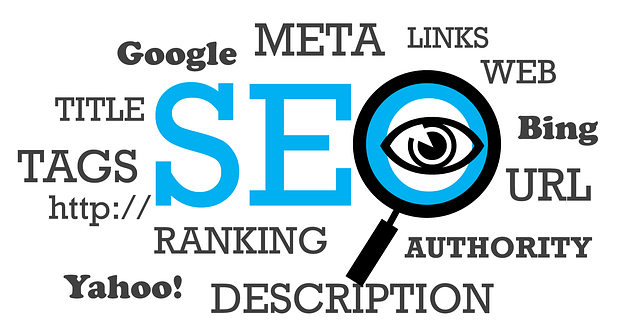The million dollar question is: How can I do this and get the best results? I have prepared an article that will guide you through the process in 3 steps:
Before I go any further, it's important to understand that keywording is one of several important steps in your SEO strategy. This alone will help but it's not the final solution for ranking If you've already written several pages of content, that's alright, but the best course of action is to start with keyword research, selection and density. Trust me, this is time well spent. If search engines understand what you’re all about, it's easier to include your website in the results. Follow the steps I have mentioned below and your website will enjoy better ranking in search results.
1) Think about what keywords you would choose while you search for certain products or services. Think from a customer point of view and not from a search engine or SEO point of view. Collect and write it down. I suggest using a spreadsheet so that it will help you in the stages as well. 2) Another option is to ask your customers and friends how they search on the net to find your business. People think differently and might not use the same keyword phrase to find that product or service. This will be a source of target keywords. Collect and store them. 3) Keyword suggestion tools. There are 100's of tools on the web some of them are free and others charge a fee. This link will help you out to select the one that works best for you. Type in your keywords and phrases into these tools and you will find 100's of keyword suggestions for a particular product or service along with monthly search stats. They also indicate how much competition there is for that particular keyword phrase. It's always more challenging to rank for high search volume keywords. Choose keywords that are less competitive, so that your website will rank well for that particular keyword phrase in search engine results. Try to include long tail keywords (4 words or more). They are often less sought after and can provide a competitive edge. Once these steps are done, use your spreadsheet to determine the ideal keywords. Google likes websites with more content. Why do you think Wikipedia is usually the #1 result in any search? Build a spreadsheet that will list the relevant keywords for your business compared to the search volume and competition it faces to be well ranked. As mentioned before, try to choose less competitive keywords. After this stage is completed, it's time to start building content for your website. 4) If you’ve already published your website, check your web logs and gather keywords that people use to find your site. This will guide you to adjust your content. Make sure to register your website with Google Search Console as it captures the queries used to find your site.
Density Search engine robots are very intelligent spiders they can determine when you're trying to cheat them. They index web pages to determine how many times a keyword has been used on a particular page and can flag a website if it identifies word stuffing. Now you see now why keyword density is so important - it can hurt your ranking! An ideal rate would be between 10-15 % of keyword density on the page (based on the total amount of words). Use different keywords related to a phrase so that the words are picked up by search engines. If the job is well done, search engines will determine a page or website as relevant and identify it as authoritative content. For example, a search for the keyword "dog supplies" shows numerous related terms like "dog supplies online" "dog supply store" etc. Select words and related expressions that will help better identify your website within the market it represents and build your content avoiding keyword concentration.
Use your spreadsheet with the selected keywords to place them in your article as links to make them your anchor text. These will eventually be picked up by search engines and become keywords related to your website. Also consider including your site in relevant business listings. Search for the term "business listing {name of city where your business is located}". Some are free, others are paid and several of them provide DoFollow links to your website. The more external links pointing to your website from relevant websites (content and rating) the better. Search engines read this as authority and reward it with a better ranking. And remember, this is not a sprint, it's a marathon. If you are well prepared slowly but surely your website will increase in importance and start showing up in search results. Make sure your design is user friendly, the content is easy to find and you offer several contact options. Visitors don't spend time on websites that they can't find what they're looking for. Happy keywording! Target Practice Pro is your go-to digital marketing solution for planting marketing seeds and boosting your business. Call us now or schedule a talk.
0 Comments
The effectiveness of an online marketing program is dependent on the extent to which it succeeds in reaching the intended target audience at a time when the marketing message is relevant to the target. Initially it was believed that the web, with its data mining capabilities, would open up dramatic new opportunities to marketers, but the initial enthusiasm has proven exaggerated, largely because marketers were unclear in how they defined relevant and bombarded consumers with automated marketing messages that proved to have little genuine relevance to the site visitor.
The real way to guarantee relevancy is to allow the user to determine what is relevant to him or her at any given moment. It's true that this is being done to some extent by having a presence where relevancy might occur. Still, the challenge for online marketers is to create new tactics or new twists on existing tactics that will serve the interests of online marketers by serving the needs of online buyers. Search engines allow online users to declare relevancy by electing the topics to which they wish to be directed. Registering your site with search engines will help drive traffic to your site. Effective registration is a three-phase process. You need to (1) be identified by the search engines, (2) be placed relatively close to the top of the search list, and (3) get selected by the searcher.
You can then use the knowledge of their presence to welcome them and offer a level of personalized assistance. This will allow the consumer the chance to indicate their relevancy as they enter your website, giving you the chance to work on suggested products and impulse buys. Merchandise - traditional retailers use a variety of physical elements to promote the sale of goods in their stores. Some of these include scent machines, music, lighting and shelf placement. Your online entity needs to merchandise its goods without the benefit of these subliminal influences. It is therefore essential that you present your products in an orderly and logical manner. Make sure to incorporate sophisticated search engines that provide the consumer with the ability to search regardless of their perspective of the product. Also, when presenting merchandise it is best to offer a photo, as well as in-depth product specifications. Some sites also offer consumer reviews and product of the day. Both of these are effective and useful merchandising strategies. Have Good Web Architecture - when designing the architecture of your site, keep in mind the consumer experience and strive to construct a site that provides the greatest possible levels of convenience, information and comfort. The way products are presented is only part of the puzzle. You must also pay attention to the user path, the check-out and payment process, and the placement of special offers. You are aiming to create a gratifying and enjoyable consumer experience. Design your website to deliver. Use e-mail - mail can serve as a valuable marketing tool provided you structure your messages well and avoid engaging in spam. Use your e-mail campaign to develop a relationship with your shoppers, allowing them access to special offers and updates about new product offerings. Practice Loyalty Marketing - loyalty marketing is valuable because it creates a bond between you and your customers and gives them an incentive to come back and buy from your website again. Some loyalty programs allow buyers to earn points that can be redeemed at a variety of network-affiliated websites. Other programs allow points to be converted to cash. You also have the option of developing your own incentive loyalty program, although Tudog does not recommend this unless you are prepared to provide extremely attractive rewards. There is a consumer perception of added value in programs that allow for redemption through multiple sites or as cash. The important thing to keep in mind is that loyalty programs show customers that you appreciate their business and they in turn reward you with repeat purchases. Develop an Affiliate Network - affiliates serve your site by creating points-of-awareness at various websites of similar or related interests. They can serve to create credibility through association that can lend exposure to your affiliate efforts. Target Practice Pro is your go-to digital marketing solution for planting marketing seeds and boosting your business. Call us now or schedule a talk.
If you are developing a new website, or just want to improve the natural search results of an existing website, there are a few Internet marketing secrets you need to know - especially those that can provide a significant boost to your rankings.
One of the simplest internet marketing secrets you can put into effect immediately is to register your domain name for 3 years. Many individuals who begin a web-based business register for one year only. You must realize, however, that Google is in the business of generating quality results from legitimate businesses. If you're an established business, chances are that your website has been up for more than a year. Google likes to see longevity and commitment. If you plan to be around for some time, register your domain for three years and show Google that you're in business to stay.
You will need to copy what the best websites for that keyword phrase have done and improve upon it. You don't need a marketing expert to show you how to do what I've just described, simply copy the best and evaluate each point noted. Shape your site to appeal to Google and other key search engines.
The best advice I can give you, however, is to research SEO and link building software/websites on the Internet. This will allow you to make the most of your time and target the best sites to improve your link popularity. Building your link popularity is an arduous task. I've certainly learned over the last few years that your effectiveness in this area is ultimately determined by the tools you use and the effort you exert. Take my word on it, you don't want to build your links manually, you'll never get ahead. Once you begin developing the links, you'll need to monitor them on an ongoing basis. Keep in mind that you will often have to provide a link on your website to the third party site. Be sure to create a links page where you maintain your link exchanges and monitor it regularly to insure that third party links to your domain still exist. If removed, you should remove your link as well. The internet marketing secrets shared in this article are essential for improving your search engine results. Take your time and implement each one in a controlled and disciplined manner and you will see your rankings improve. Target Practice Pro is your go-to digital marketing solution for planting marketing seeds and boosting your business. Call us now or schedule a talk.
Typically, people use their website for many different purposes. Regardless, you still need to answer this question. The focus you will get from it will help you create a more effective strategy. Here are the top three most common answers to the question "What is THE purpose of my website?"
Search engine marketing is all about SHOWING UP when people search for what you sell, offer, or have on your website. There is a growing body of knowledge (books, articles, etc.) on how to do this. And like anything else, it has become over analyzed and too complex. To further complicate things, some search engine marketing techniques are ethical and legitimate, while some are not. The best approach is to create a search engine marketing plan that focuses on two aspects:
Instead, the formula for PPC success is in well-placed bids (what you will pay to have your ad show up) combined with meaningful landing pages (where people go when they click on your ad).
The best strategy to take is a common-sense approach to SEO: develop standards for your website that ALL pages must adhere to. If you do this, and enforce it, you can then branch out into some of the other "niche" aspects of SEO.
Once your web pages comply with the above standards should you start more advanced SEO techniques, including keyword targeting, 301 redirects, link building (getting more links to your site), RSS news feeds, blogs, and SEO-specific metrics and tracking.
Pay-per-click advertising really boils down to 3 components:
For example, a company that sells Keen high-performance outdoor sandals would probably be best served bidding on "keen sandals" versus "sandals" which could include searches for the all-inclusive resort, Sandals.
and number-based lists (i.e. "Top 5 Hybrid Cars for 2006") have all been proven to work. Writing effective ad copy below the title/link is really about reinforcing the term(s) to search for. This means using the keywords in the ad copy, and starting the copy with an action verb. By following the approach above, you can create or evaluate your search engine marketing strategy, focus on what matters most when executing your plans, and more effectively achieve your goals. Target Practice Pro is your go-to digital marketing solution for planting marketing seeds and boosting your business. Call us now for a free quote.
|
AuthorTPPro Blog brings you the best insights and hacks to build a success story with digital marketing. Boost your business by reading our weekly posts. Archives
April 2022
Categories
All
|
























 RSS Feed
RSS Feed
